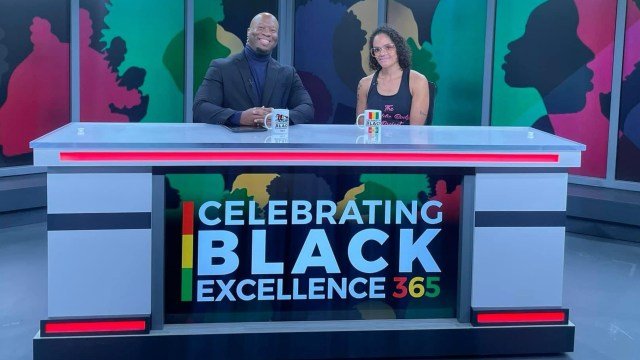
Health care advocates protested care denials at UnitedHealthcare on July 15, 2024, in Minnetonka, Minn. The shooting of UHC CEO Brian Thompson has sparked an outcry online over issues with the U.S. health care system.
David Berding/Getty Images for People’s Action Institute
hide caption
toggle caption
David Berding/Getty Images for People’s Action Institute
In the wake of UnitedHealthcare CEO Brian Thompson’s killing, there’s been a lot of attention on the dysfunction of the health insurance industry.
The shooting triggered a flood of emotional posts online about health insurance denials. Since suspect Luigi Mangione’s arrest, attention has turned to a handwritten note, police say they found on him, which according to the AP called health insurance companies “parasitic” and noted the disconnect between this country’s expensive health care system and low life expectancy.
It’s true that U.S. health care is uniquely costly and often frustrating, but experts say the reasons our life expectancy trails many comparable nations are complex.
The Centers for Disease Control and Prevention’s latest calculations put America’s life expectancy at 77.5 years. That’s far below the average life expectancy for high-income countries, which is 80 years, according to the World Bank. Life expectancy in the U.S. is on par with Ecuador and Croatia.
While problems with health care access cause suffering, health care is not the main factor behind poor life expectancy, says Dr. Steven Woolf, director emeritus of the Center on Society and Health at Virginia Commonwealth University.
“Research shows that about 10-20% of health outcomes are attributable to health care,” he says. That includes “really serious deficiencies” in the system such as lack of access to insurance and high costs.
“But the majority of the reason for poor life expectancy in the United States exists outside of the health care space.”
Social and ‘commercial’ drivers of poor health
In the context of Thompson’s death, there’s an irony: One significant contributor to America’s lower life expectancy is gun violence, killing Americans in their prime. (Thompson was 50 years old.)
“Two years difference in life expectancy probably comes from the fact that firearms are so available in the United States,” Eileen Crimmins, professor of gerontology at the University of Southern California, told NPR in 2023.
Crimmins was on a panel of researchers — chaired by Woolf — behind a landmark study from the National Academy of Sciences on the problem of American life expectancy entitled “Shorter Lives, Poorer Health.”
Some of the other factors enumerated in the 400-page report include physical inactivity, child poverty, air pollution, and traffic fatalities.
Woolf says public policy also plays a role. He notes that other countries have social support programs to help people living in poverty or without stable housing, “so that it doesn’t end up affecting their health,” he says. “We don’t have as extensive a support structure like that in the United States.”
He also points to what he calls “commercial determinants of health” — instances in which lax regulation of industries and products lead to health problems.
“We see it in the food industry. We see it in the firearm industry. The opioid epidemic began with the [availability] of OxyContin in 1996, a drug that other countries throughout Europe and elsewhere would not approve,” he says.
This contributes to “a social and political environment in this country that puts profits over public good,” Woolf says. “It’s a systemic issue that occurs across corporate America. The healthcare industry is no exception, but it’s not the only source of our poor health.”
Woolf notes that none of this justifies Thompson’s killing, which he says is “clearly horrible.”
Denials of care
One way that this systemic issue has played out among corporate health insurance companies is through the denial of claims for treatments deemed not “medically necessary.”
The experience of coverage denials is widespread, Miranda Yaver, a professor of public health policy at the University of Pittsburgh, told NPR’s Morning Edition. She’s been researching coverage denials for a forthcoming book. She interviewed more than 1,300 U.S. adults and found 36% had experienced at least one coverage denial.
“The frustrating thing for a lot of patients is that there’s just a lot of opacity,” says Yaver, who writes a Substack called Rationing by Inconvenience. “When people have tried to dig into the rationales for claim denials, insurers have come back and said that this information is proprietary.”
UnitedHealthcare was sued last November for allegedly using AI to process prior authorizations in Medicare Advantage plans. (Other insurers face similar lawsuits, filed last year.)
“One of the things that the [UnitedHealthcare] lawsuit points out is that 90% of the denied claims were reversed upon appeal,” said Yaver, citing an allegation from the complaint. “That is just a wild figure because this really suggests that there is a high error rate.”
These lawsuits are ongoing. UnitedHealthcare did not respond to NPR’s request for comment about its lawsuit; the company’s attorneys have asked the court to dismiss the case.
Yaver wrote on Substack that while there have been expressions of “exasperation if not fury toward private insurance” in the wake of Brian Thompson’s killing, “this act is almost assuredly not going to lead to a shift in policy by UHC and other private insurers.”
“These are widespread problems that require systemic interventions,” she wrote.
Carmel Wroth edited and contributed to this piece.











